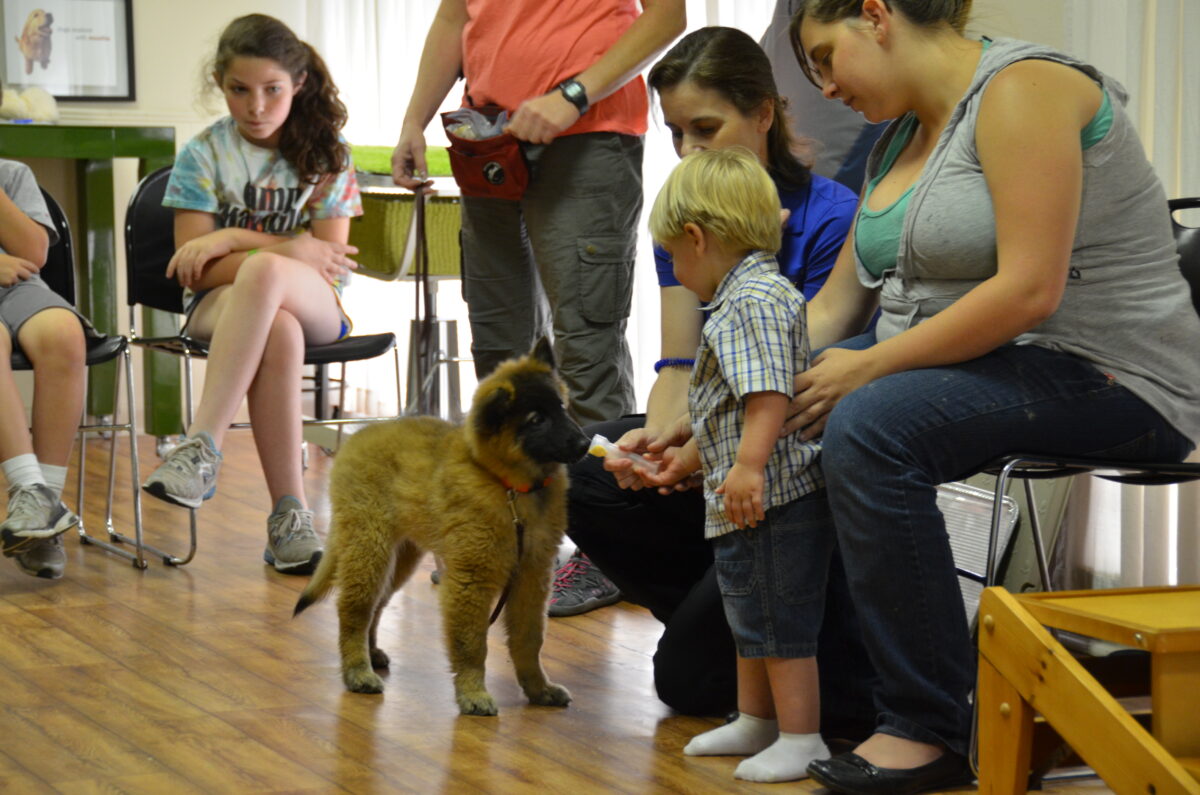April 10 is National Hug Your Dog Day, but hugging dogs isn’t always a good idea, or even an expression of love, at least not from the dog’s perspective. All primates, from chimpanzees to Japanese macaques (snow monkeys) to humans, are hard-wired to console others and communicate affection by hugging. Dogs are not primates.
Perhaps because dogs evolved with humans and are hard-wired to understand intent (if not action), many dogs tolerate our hugging. Also, dogs largely enjoy attention from those they love, so by associating our attention and affection with hugs, they learn to love the hug or at least to accept those crazy humans’ actions.
However, other dogs never come to appreciate it. What’s more, a dog who doesn’t know you might not be accepting of a hug, even if the dog welcomes them from others in the family. This should come as no surprise as even humans – hard-wired to hug – don’t typically randomly hug strangers without a reason to do so or permission.
Dogs communicate all the time, but we don’t always understand what they’re saying. For example, in response to an approaching person ready to hug, a dog might be looking the other way and standing stiffly; in effect, saying “Don’t do it.” And even when some understand, kids (mostly but not exclusively) might not take “no” for an answer.
The result – even within a family – could be a dog bite. From the dog’s perspective, the dog is saying (often repeatedly) “I don’t like being hugged.” There are myriad of explanations for a dog not accepting a hug, anything from the dog just not liking it, perhaps due to a previous bad experience, to experiencing pain from arthritis, an ear infection, or other discomfort. And like people, some dogs simply may not be in the mood for a hug.
A hug also puts constraints on the dog. They may feel trapped and unable to get away. When “freeze” hasn’t worked and the person keeps moving in for the hug, a dog’s option to flee is diminished. Displacement behaviors such as yawning or licking the person’s face then quickly turning their face and averting their gaze are often overlooked or even considered cute. That’s when finally the frustrated dog may escalate to a bite, because all other coping mechanisms are compromised or go unheard and they no longer have the ability to escape what they perceive as a threat.
That doesn’t mean that hugging a dog is always a precursor to a bite, but hugging unfamiliar dogs, especially allowing children to do so, is never a good idea. And that’s true even if the dog’s owner offers permission.
Most dogs are remarkably tolerant and won’t bite. Still, forcing a dog to tolerate a stranger’s unwanted affections isn’t fair to the dog.
The good news is that some dogs have learned to express their joy by hugging us! For them, let’s call this National Hug Your Person Day.
This article was reviewed/edited by board-certified veterinary behaviorist Dr. Kenneth Martin and/or veterinary technician specialist in behavior Debbie Martin, LVT.
Steve Dale, CABC (certified animal behavior consultant) has written and contributed to many books about pets; hosts three radio shows; contributes to Veterinary Practice News, CATSTER and others; is on the Board of Directors of the Human Animal Bond Association and Winn Feline Foundation, and is chief correspondent for Fear Free Happy Homes. He speaks at conferences worldwide. His blog: www.stevedale.tv
Want to stay in the loop on the latest and greatest in keeping your pet happy and healthy? Sign up for our free newsletter by clicking here!








